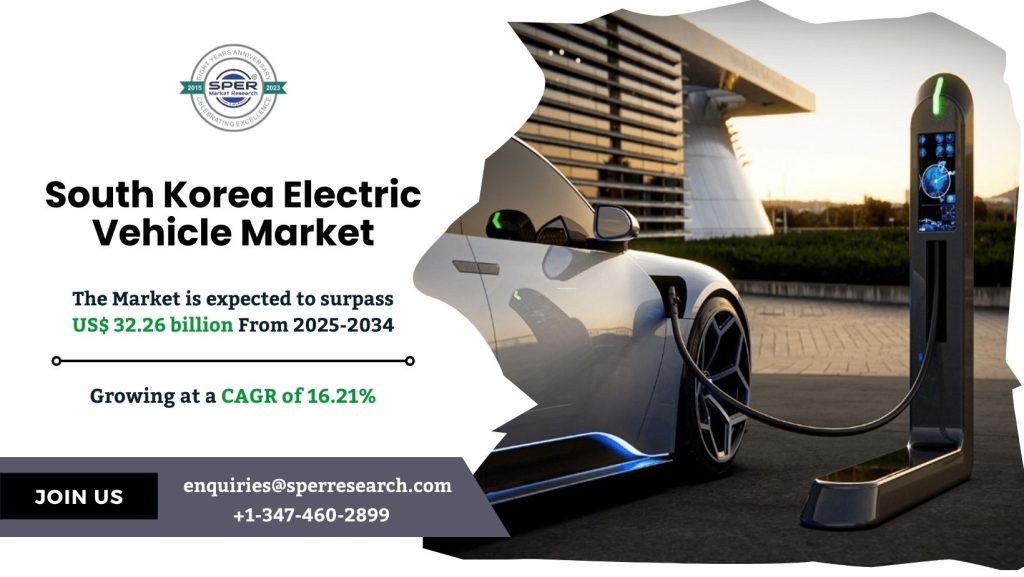South Korea Electric Vehicle Market Size, Trends and Analysis 2033

In contrast to conventional internal combustion engines that run on gasoline or diesel, an electric vehicle (EV) is a type of vehicle that is powered fully or in part by electricity. EVs are powered by rechargeable battery packs, usually lithium-ion batteries, and have electric motors. Plug-in hybrid electric cars (PHEVs), which use both electricity and petrol, battery electric vehicles (BEVs), which only run on electricity, and hybrid electric vehicles (HEVs), which use fuel predominantly but with electric power assistance, are the three main categories. Compared to conventional cars, EVs are renowned for being more energy-efficient, emitting no tailpipe emissions, and requiring less maintenance.
According to SPER market research, ‘South Korea Electric Vehicle Market Size- By Vehicle Type, By Propulsion, By Drive Type- Regional Outlook, Competitive Strategies and Segment Forecast to 2033’ state that the South Korea Electric Vehicle Market is estimated to reach USD 32.26 billion by 2033 with a CAGR of 16.21%.
Drivers:
Strong government initiatives, such as tax breaks, generous subsidies, and aggressive goals to have millions of EVs and charging stations by 2030, are driving South Korea’s EV market’s rapid growth. With significant investments in cutting-edge lithium-ion and solid-state batteries from companies like LG Energy Solution, Samsung SDI, and Hyundai, the nation is also a global leader in battery technology. These developments cut expenses, shorten charging times, and increase EV range. EV adoption nationwide is also being fueled by rising consumer demand for clean and efficient transportation options, national carbon neutrality targets, and increased public awareness of environmental issues.
South Korea Electric Vehicle Market Sample in PDF Format, Click Here
Restraints:
There are a number of barriers to South Korea’s EV market, even with supportive policies. Uneven distribution of charging infrastructure is a problem, particularly in rural locations and crowded urban apartments where home charging is difficult. Even with incentives, high upfront car costs continue to be a deterrent for budget-conscious buyers. User hesitancy is increased by technical worries about battery longevity, recyclable materials, and performance in harsh environments. Profitability is also impacted by fluctuations in the cost of raw materials used in battery manufacturing. Furthermore, fierce international competition, especially from quickly developing Chinese EV brands, forces domestic producers like Hyundai and Kia to innovate swiftly while maintaining competitive prices in both domestic and foreign markets.
Seoul dominates South Korea’s electric vehicle market because of its dense population, sophisticated infrastructure, large number of charging stations, and significant presence of suppliers and major automakers. Some of the key market players are Hanwha Q CELLS, Hyundai Mobis, Hyundai Motor Company, Kia Corporation, LG Energy Solution and others.
For More Information, refer to below link: –
South Korea Electric Vehicle Market Growth
Related Reports:
United Kingdom Electric Vehicle Market Size
Turkey Logistics and Warehousing Market Size
Follow Us –
LinkedIn | Instagram | Facebook | Twitter
Contact Us:
Sara Lopes, Business Consultant — USA
SPER Market Research
enquiries@sperresearch.com
+1–347–460–2899





